*
PRESS RELEASE SOURCE: PRIME VIDEO
*
S2 Short Synopsis:
Another year in the life of Diddly Squat Farm, run by Jeremy Clarkson, Britain’s best-known but least-qualified amateur farmer. In an effort to increase his annual profit (£144 last year) he’s diversifying, in the shape of cows, more chickens and his own restaurant.
*
Interview with Kaleb Cooper
*
Did you know the first series of Clarkson’s Farm was going to be such a big hit?
I remember people coming up to me and saying, “It’s going to be massive, mate. This whole show is going to be massive.” I was like, “Well, if it is, amazing.” But whether or not it did well, the most amazing thing was to show the world what I love doing the most. And then on the first day of it coming out, I gained about 300,000 followers on Instagram.
*
And how many followers do you have now?
1.1 million.
*
It was overnight fame for you, then?
Yeah. It’s amazing how I can’t go anywhere without someone recognising me. But this show obviously meant so much to people through lockdown. I think a lot of people turned to that show to get them through difficult times.
*
Why do you think that was?
I think it was the only bit of television that was actually being filmed at the time, for a start. Because we were working on the farm anyway and we didn’t need much of a crew, we just kept going, just the cameraman, me and Jeremy. And we were the first ones to show the effects of Covid on television.
*
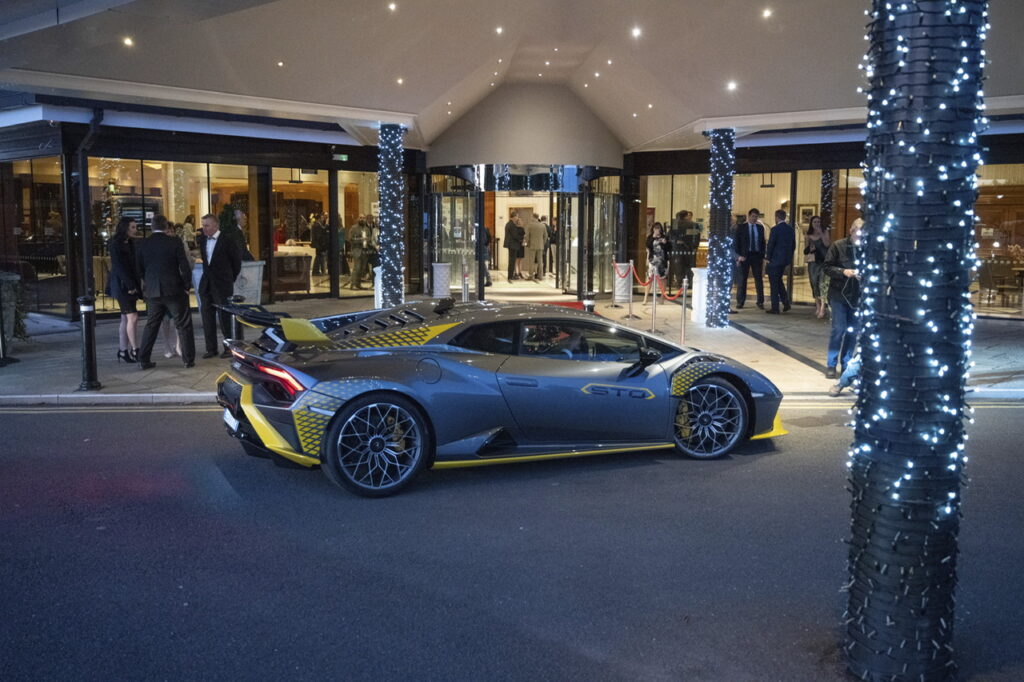
*
Jeremy says fans push past him to get to you. Is that true?
Yeah, that is true [laughs]. Is that what he said? It does happen quite a bit. The Farming Awards was an amazing day. We won an award for Flying the Flag for British Agriculture. I went and got my hair done especially because it’s an important thing. Of course, you’ve got to have your hair done before you go to the British Farming Awards! I had this new style of hair, actually. I had tramlines put into the side of my hair. Jeremy drove me up there in a Lamborghini because it was my first time going to Birmingham. I’m slowly getting more travelled now, being with Jeremy.
*
You’ve been to London and Birmingham now, having previously never been outside Chipping Norton apart from a school trip where you refused to get off the coach.
Yeah. It’s quite exciting. You’ve got to face your fears head on, and you’ve got to run at them, you know? Anyway, Jeremy drove me to Birmingham, and I made him drop me off at the red carpet, while he went and parked the car.
*
Who’s the VIP now?
Yeah [laughs]. We had a bit of an argument, but he did it in the end. I got out on the red carpet, everyone followed me in, and then he trailed in afterwards like my chauffeur.
*
*
What was it like inside?
It was all farmers, so we just started talking farming. I love talking farming. I mean, to be sat with all those farmers was amazing. I like talking to people who don’t know farming as well, though, because I can tell them a few things. I chat to everyone.
*
How does it make you feel when you’re getting that kind of adulation: is it fun or overwhelming?
If there’s a massive crowd – I’m not a very big fan of big crowds. I feel very claustrophobic, in a way. But as long as I’m inspiring that young kid to go out there, and maybe start a job or go and get an apprenticeship – that’s what I really like about the whole thing, to be honest. Sometimes little kids come up to me, and they go – [gasps] – and they just freeze. And I’m like, “Hi mate. Do you want to give me a high five?” They’re so excited, they can’t talk. If I can make someone’s day, it means quite a lot to me. And I get an adrenaline boost from that.
*
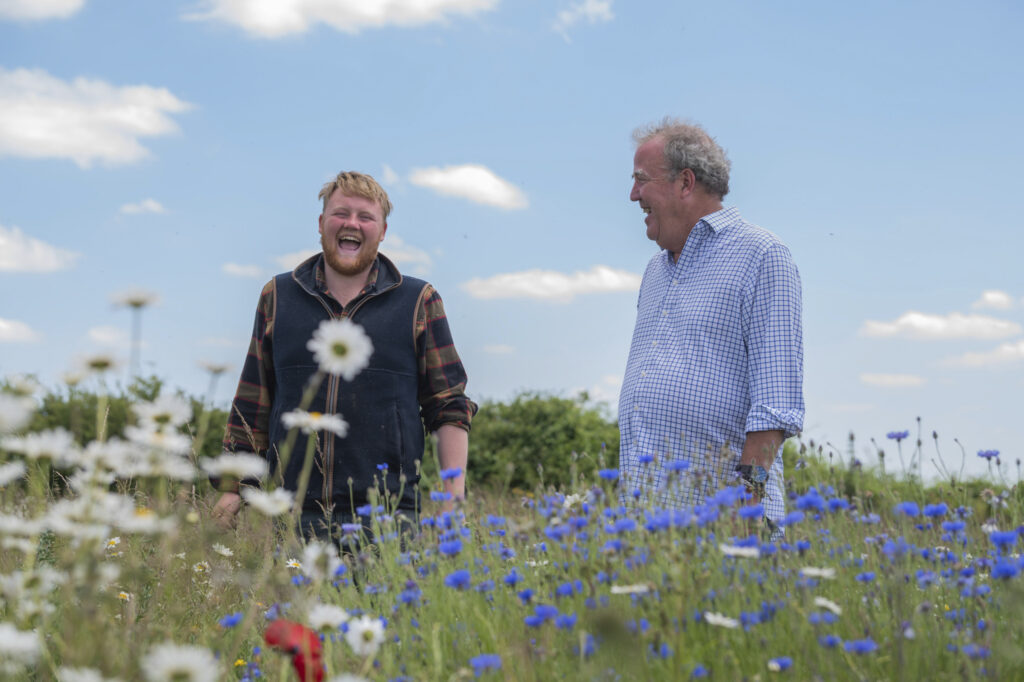
*
Has anything changed for you and your position at the farm since making the first series?
Nothing’s really changed, to be honest. I’m still working on the farm with Jeremy just as you saw in the first series. It’s a real job and it’s our real lives. The problem I’ve got now is that Jeremy’s got a little knowledge.
*
That’s dangerous.
That’s very dangerous. I’ll tell him to do something, and he goes and does it completely the wrong way and it annoys me. Before, he’d do it wrong because he didn’t know what he was doing. Now he does it wrong because he thinks he’s got a good reason. I’ll say, “I told you to do it one way, so do it that way. Don’t not listen to me.” He’s very good at talking the talk with farming, but he’s not got all the practical skills like me. He’ll talk farming all day long but in terms of practical skills, he can just about pick up a hammer.
*
It takes years to build up your level of knowledge, I suppose.
I mean, I started at 13. This is my full-time job. I’d describe myself as being born to be a farmer; you know? I came out of the womb farming.
*
You did treat yourself to a new tractor, though.
Yeah. I started farming at 13 and my contracting business started at 16 when I could drive on the road. I’ve always been trying to expand my fleet as a good businessman does. There’s no point going backwards in the world, you’ve got to try and keep expanding. This year I bought a new tractor to add to my fleet. I normally trade them in every three years because the warranty runs out and they start breaking down. It’s like buying a car but with a tractor, that’s your livelihood. If it doesn’t run, and doesn’t get your corn in the ground, it can mean thousands of pounds lost.
The new tractor is not a brand-new sports car – I haven’t got the funds for that and it wasn’t the right time to do that. I like collecting cars, but I was very grown-up and I bought something for my business. But it wasn’t that grown up because I put black rims on it and a go-fast stripe on it, which you can’t see unless you’re sat in the tractor, which is quite upsetting. And I put in a little bit of bling – some chrome mirror guards and a chrome exhaust, and the back windows are tinted a little bit as well.
*

*
You must have a bit more money – have you treated yourself to anything else?
No. Everyone thinks I’m a millionaire or a billionaire or whatever because I’ve been on television once. Well, unfortunately, that’s not how it quite works. Every bit of money that I do get, I save. I want to buy my own farm. I don’t go out there clubbing every weekend. I don’t go out drinking at the pub until I’ve got no money left. I literally save as much money as I can to buy a farm. And around me, that’s very hard, because it’s so expensive here. But I’ll be a very happy man if I can buy a farm. It’s a dream of mine. I’m determined to make that dream work.
*
You’re a dad now as well.
The dream is to buy my own farm and bring my kids up on my own family farm – that’s a dream and a half, that. To walk out in the morning and just have a nice, peaceful walk around your own farm, or go and do the animals together with your little boy or little girl. I don’t think I can rest until that dream is fulfilled. I work an extreme number of hours. I do 18 hours a day, most of the time. And I’m not going to stop until that dream is complete.
*
*
Let’s talk about the second series and what’s changed on the farm. The main thing is that Jeremy bought some cattle.
Yeah, I love that. It’s the best addition ever. Cows beat sheep any day, don’t they? They’ve got personality. The whole herd is amazing. I’m a massive cow fan. I started as an apprentice on a cow farm. The personalities they’ve got – you get that one cow that loves you to pieces. Then another cow who’s funny all the time. And you get that one cow who just literally hates you. Well, there was definitely one cow in that herd that hated Jeremy, I tell you.
*
Tell me more about her.
We called her the Attack Cow. She was just protecting her calf, and Jeremy got in the wrong place at the wrong time. I don’t think she really meant it. The cows hate the drones, and they hate the cameras. The Attack Cow would chase the cameraman whenever he got near them. She was fine with me, she was fine with everybody else, but she would chase this one cameraman out of the pen and Jeremy was in the wrong place at the wrong time too.
*
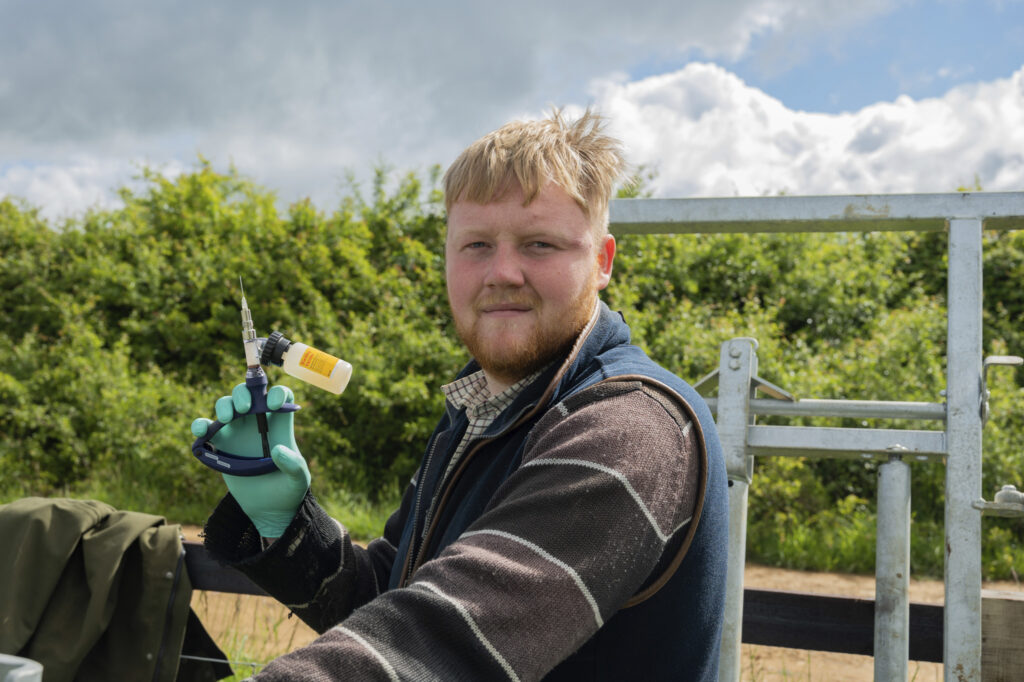
*
There was a bit of a mishap getting the cows into the barn when they first arrived, wasn’t there?
Yeah, but I think that was Jeremy’s fault. I never blame the cows for anything. I think it’s probably Jeremy’s fault from not being very good at handling them. They did get out a few times as well because the fencing around the farm is not the best. It was put up 15 years ago. It has weak points. So that’s Jeremy’s fault as well.
*
Jeremy instantly became quite fond of them and gave them names. Do you think he was a little bit too sentimental about it?
No, I think all farmers do that. Sometimes the cows have to go into the food chain or whatever: that’s just a natural farming thing. But the majority of the time, a farmer would be probably lying if he didn’t give a cow a name. Because they have got quite a personality to them. Honestly, I cannot describe to you the personality they hold.
*
Did you manage to breed them?
We had eight calves in the end. I pulled out three and saved a couple of their lives. Jeremy’s never done it before. Calving a calf is very different from calving a lamb. Sheep are much smaller and easier to handle. When you’ve got a big calf, sometimes it can be very challenging. But they all survived, which is amazing. A few of our cows had really big calves inside them. Sometimes that happens with cows, and you can blame the feeding: they had really good grass the whole year, so they might have just overcooked their calves. But fortunately, we managed to get them all out alive and they all survived.
*
This series also tackles the subject of TB, which must be something you’ve dealt with many times.
I’ve seen many a farm go down with TB and I’ve seen the upset it causes. It’s always a worry. If you’ve got cows, you worry about TB.
It’s very tough. Say, for example, all your money is tied up in a car. You can’t drive that car anymore, but you have to keep putting fuel in it every day. You have to keep putting new tyres on it every day. You have to keep putting on wing mirrors. But you can’t sell it, therefore you can’t get any money back.
That’s what happens when TB gets into a farm. You can’t sell any livestock, but you have to continue funding the whole farm and the animal feed and obviously there’s no profit coming back in so it’s always at a loss.
*
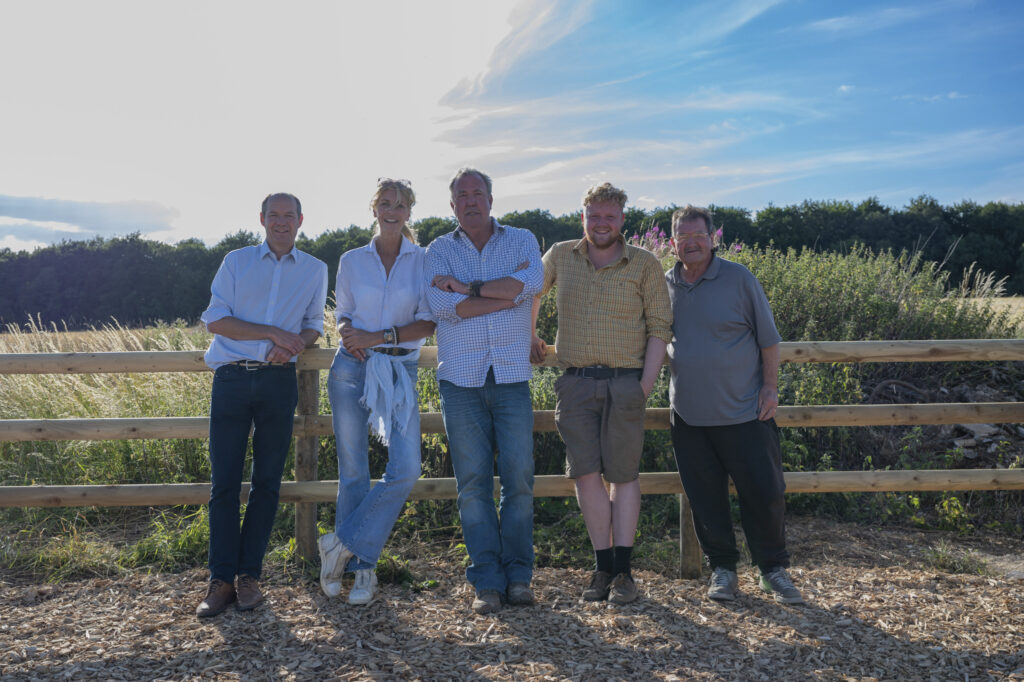
*
Jeremy talks to a dairy farmer who says she doesn’t take a wage because she earns so little money. Did that surprise you?
No. People will probably sit at home and go, “Well they’re driving their Range Rover, they get a Single Farm Payment” but there’s only a certain percentage of the farmers out there that are doing well. The big landowners are doing much better than the small landowners.
In terms of that particular lady, Emma – I worked down on her farm when I was a kid. I got the guys from that farm into the Diddly Squat Farm Shop and introduced them to Jeremy. They don’t take a wage because they simply cannot take a wage, because milk doesn’t make enough money.
It’s so much harder to be a dairy farmer than any other farmer, in my personal experience. I’ve done both sides of the fence. If their cows get struck down with TB, they can’t sell anything. They have to continue milking the cows and selling their milk. They might be paid 23p a litre, but it’s costing them 24p a litre to produce it, but they can’t turn around to the dairy and go, “You’re not having any more milk this week because you’re not paying me enough”, because the cows will keep producing the milk, and the milk will go off in the next two days and they’ll have to throw it away. You might as well make a ten-pence per litre loss than a 28-pence per litre loss. Every time you go out there, they’re looking after their cows and their livestock. It’s their way of life. They can’t just go, “Well, I’m going to stop feeding my cows this week.”
*
Do you hope people watching at home might start to think a bit more about their shopping habits when they watch this series?
I hope that people look at the waste each day. For example, it’s a Sunday and you have a roast where you’ve cooked a bit more than you can eat. Instead of throwing it away, make bubble and squeak. Stop wasting any sort of food, and really take care of what you eat on a day-to-day. And maybe don’t complain about paying that bit extra for beef or chicken or milk, because that money’s going down the line and actually helping someone out.
*
Jeremy has been trying to win over the local community who object to his shop and restaurant plans. What do you think of it all?
To be honest, I stay away from all of that and let him sort that bit. It’s quite nice when he goes off for meetings and I get to spend more time farming.
*
Are you still desperate to appear on I’m A Celebrity … Get Me Out Of Here?
Yeah. One day, when I get a passport.
*
But you’re going to carry on turning everything else down? That’s the only one you’re interested in?
You never know. I look at everything. I mean, it depends on the travel. I’ve got to try and venture out a little bit, but we’ll see what gets thrown this way, and then see what happens. You never know what the future holds, do you? It’s quite an exciting thing because a lot of opportunities open up.
*
For the recent featured interview with Jeremy Clarkson, GO HERE
For the recent feature interview with Lisa Hogan & Charlie Ireland GO HERE
*
If you would like to donate to help this website, you can support us here: https://ko-fi.com/5dpopculturewebsite
*


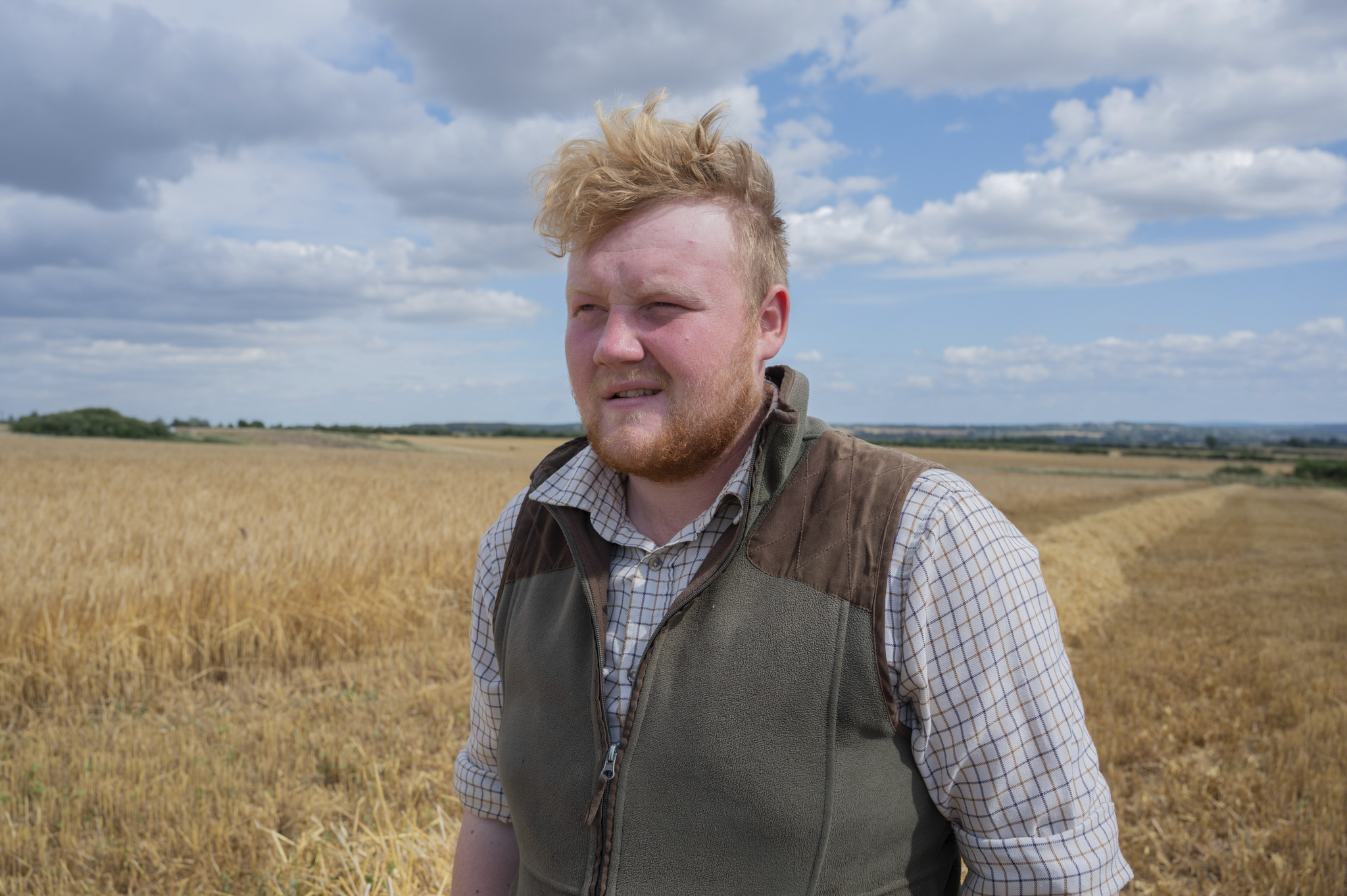
2 Replies to “Clarkson’s Farm – Interview with Kaleb Cooper”
Comments are closed.